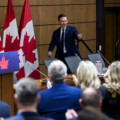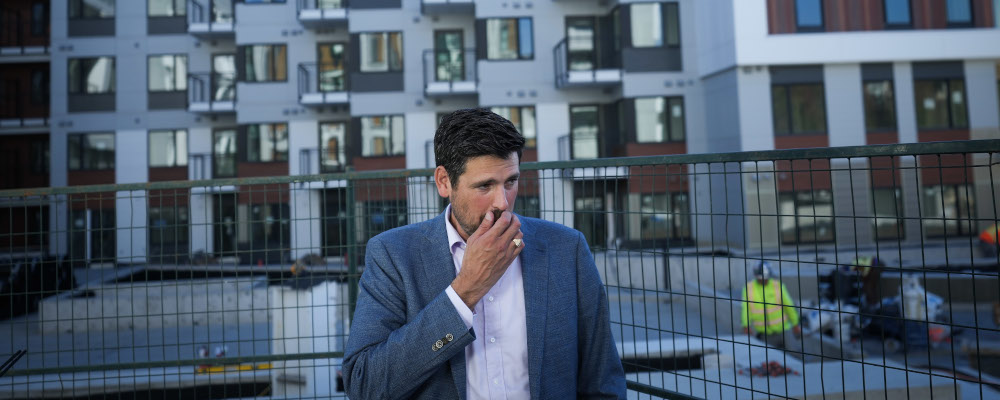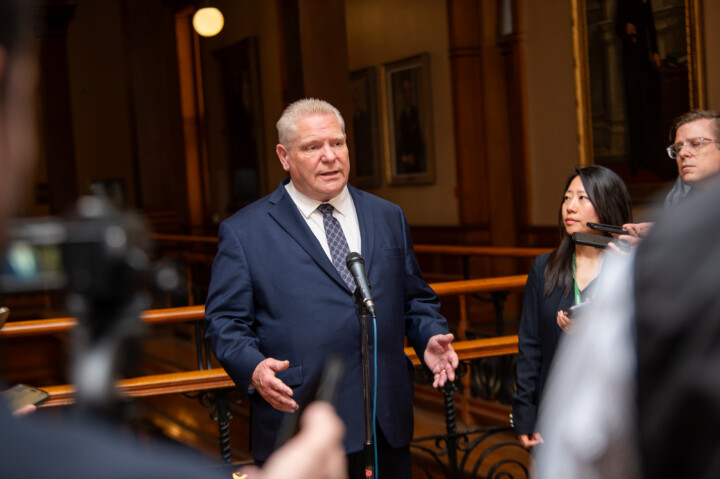As the newly-reshuffled federal cabinet meets in Prince Edward Island this week, Canada’s Liberal government has found itself caught in a wicked Catch-22: trying to reconcile its robust immigration targets with its efforts to tame the nationwide housing affordability crisis. Indeed, even the party’s most senior officials appear to be willfully blind to the clear correlation between Canada’s record-high immigration-fueled population growth and our acute shortage of affordable dwellings. They also refuse to acknowledge the plain mathematical fact that bringing upwards of half a million newcomers to our shores each year will only make this problem worse, at least in the near term.
Take, for instance, the circular logic proposed by Immigration Minister Marc Miller last week. Responding to a question about housing affordability, Miller had the following to say:
The federal government is making housing more affordable and bringing in the skilled workers required to build more homes. Without those skilled workers coming from outside Canada, we absolutely cannot build the homes and meet the demand that exists currently today.
So, to unpack this baffling logic, the minister is saying that way out of the housing crisis is to further juice demand by bringing in more immigrants. (These skilled workers will, after all, need somewhere to stay themselves while they’re building homes for the rest of us). His government’s abject refusal to see immigration as anything other than a panacea calls to mind the old saying, “If the only tool you have is a hammer, everything looks like a nail.”
But even as our government remains deeply in denial, many across Canada (including those on the Left) are openly questioning the longstanding pro-immigration orthodoxy. Articles asking if we’re taking in “too many” immigrants—a question few outside of the right-wing blogosphere dared to ask until recently—are cropping up with increasing frequency, appearing regularly in even Left-leaning media outlets. It’s been nothing short of astounding to see mainstream pundits debating this once taboo topic so openly.
This change in tone may also be a sign that the “progressive’s dilemma” that’s played out for decades across much of the West has finally arrived in Canada.
Broadly speaking, the progressive’s dilemma posits an intractable tension between mass immigration and maintaining the bonds of social solidarity necessary to sustain redistributive social policies. This thesis is premised on the logic that individual citizens feel less obliged to contribute to the collective good as they see less of themselves in their fellow citizens (i.e., with respect to language, race, ethnicity, religion, and other markers of identity).
It’s a compelling logic that explains why relatively homogenous countries like Sweden and Norway have larger welfare states than highly diverse ones like the United Kingdom and France. It also explains how some of Europe’s most successful political parties couple support for generous social policies with overt xenophobia and nativism. (Hungary’s Fidesz is perhaps the best example of this archetype).
Canada has long been thought to be immune to this dynamic, reconciling high levels of immigration with a relatively strong welfare state for decades. In fact, there’s a decent-sized literature in migration studies that ponders the underpinnings of “Canadian exceptionalism” in this respect.
But the recent change in tone surrounding the Liberal government’s immigration policy, and in particular the growing narrative that it is exacerbating our housing crisis, suggests that we might be on the verge of our very own “made-in-Canada” progressive’s dilemma—a dilemma with pronounced Canadian characteristics that differentiate it from anti-immigrant backlashes seen in other Western countries.
Pivotally, critics of the Liberals’ immigration policy have refrained from targeting new Canadians themselves. If anything, recent news stories have portrayed newcomers in a sympathetic light as being sold a bill of goods via an overzealous (and downright deceptive) national recruitment campaign. A recent series of stories have chronicled the struggles of dozens of asylum seekers who’ve been forced to live in street encampments for weeks due to a lack of vacancy in Toronto’s emergency shelters. Multiple outlets have also reported on the trend of new immigrants electing to leave Canada and return to their home countries.

The discourse also eschews the ubiquitous “immigrant freeloader” trope. To the contrary, it paints most new Canadians as eager would-be contributors to Canada’s economy who are all too often prevented from pursuing economic opportunities by political gatekeeping. To wit, political leaders from across the aisle have called for professional bodies to speed up the process of recognizing foreign credentials.
The good news is that Canadians still, by and large, appear to be content with the country’s multiethnic character—with many of us still holding multiculturalism as a point of national pride. In fact, one of Conservative party leader Pierre Poilievre’s go-to applause lines is “It doesn’t matter…if your name is Smith or Singh, Martin or Mohammed.”Poilievre, of course, has recently been accused of “dog-whistling to the far right” by some in the media. This, hopefully, is a sign that Canada remains inoculated from some of the uglier undercurrents of racial animus and ethnic nationalism that permeate anti-immigrant politics elsewhere.
After decades of maintaining a relatively harmonious balance between high levels of immigration and social welfare, Canada finally appears to be at the precipice of the Sophie’s Choice-esque dilemma that has long plagued other Western societies. While Canada’s immigration skeptics have thus far abstained from the demagoguery of their counterparts elsewhere in the world, they nevertheless posit a zero-sum conflict between maintaining high levels of immigration and preserving social welfare for everyday Canadians.
Our pro-immigration, pro-welfare state Liberal government may soon discover that the centre cannot hold.
Recommended for You

Ontario’s Progressive Conservatives need a wake-up call

Decoding the uncertainty in Canada’s oil patch—and what it means for Carney’s investment ambitions

From Jordan Peterson law to bail reform: 9 policy proposals from the Conservative convention that could spur Canada’s comeback

‘A delicate balance’: Why the Conservative convention is a crossroads for the party




